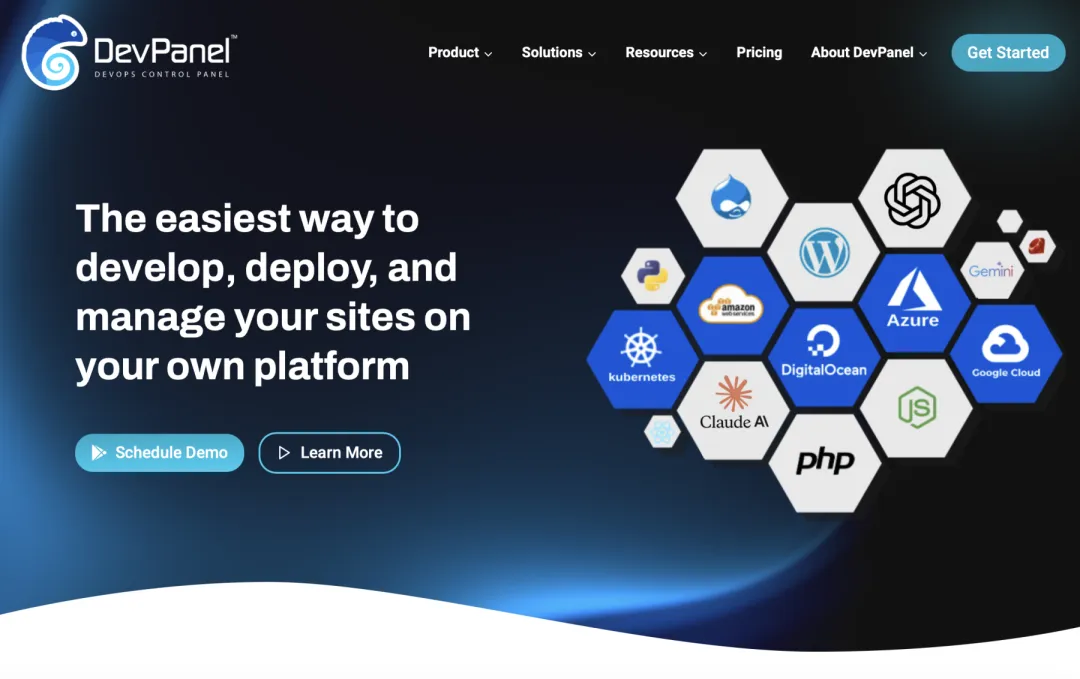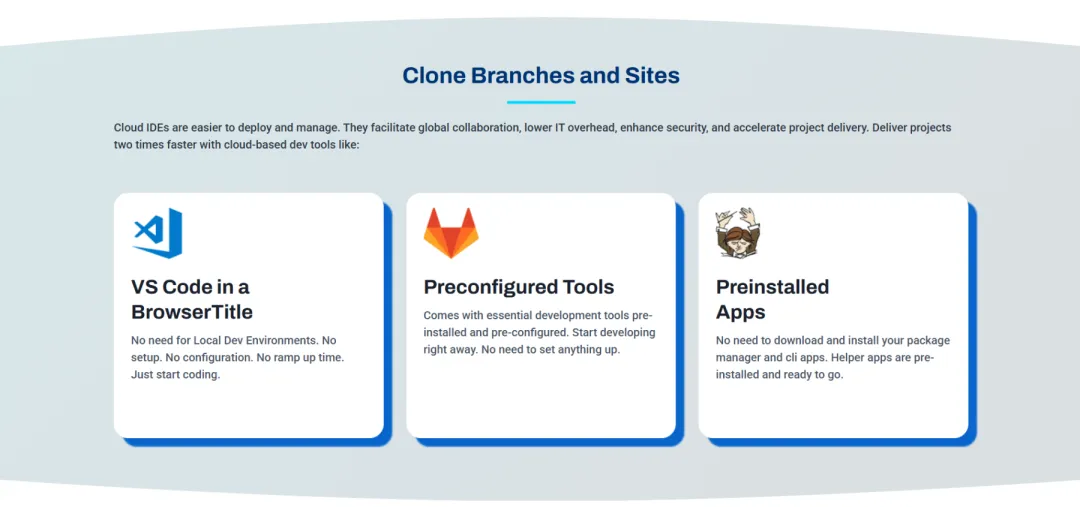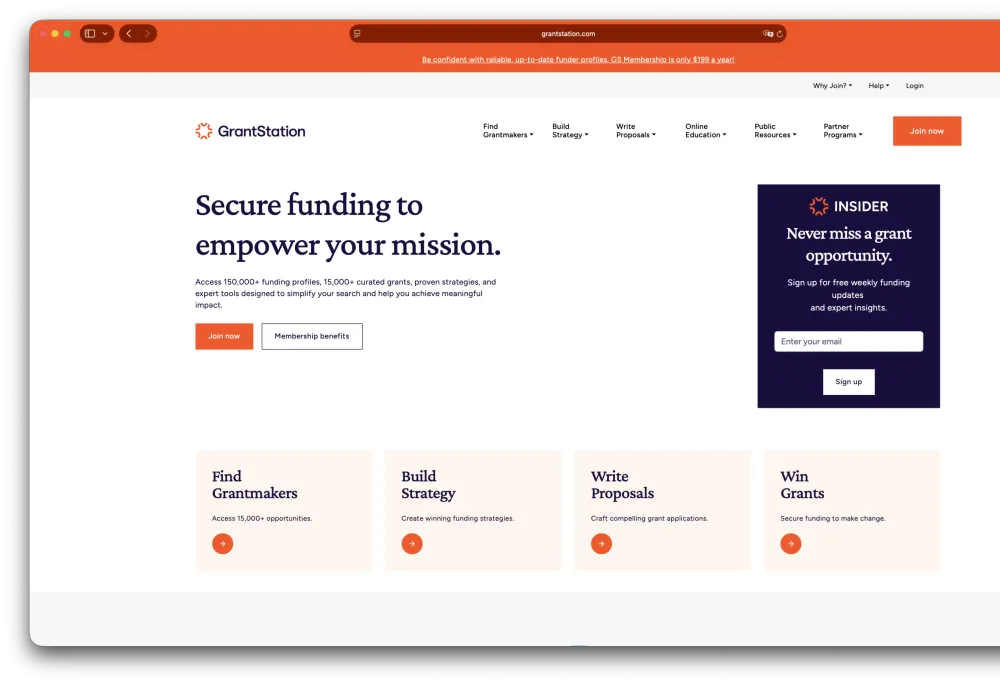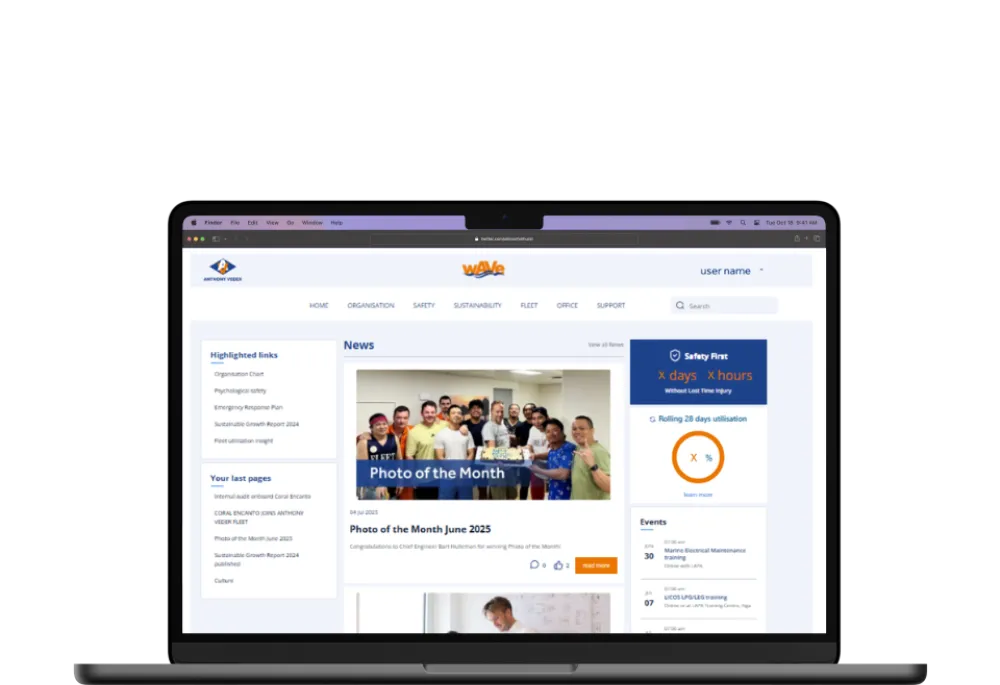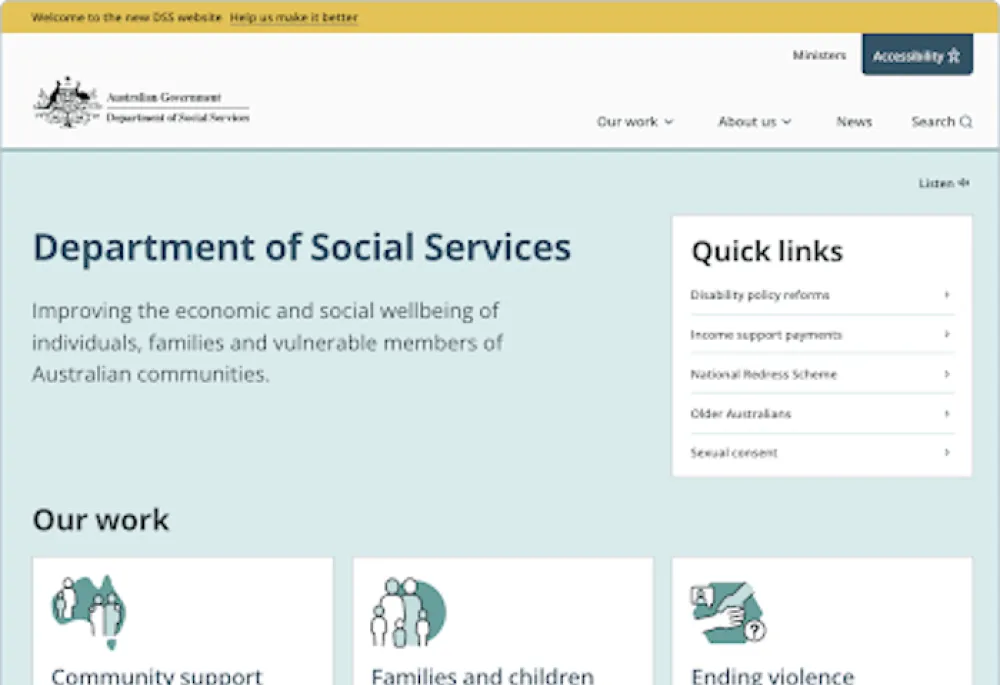Sector(s)
Team Members
Project Team
-
DrupalForge Core Team – Responsible for defining requirements, designing the platform, and building the template marketplace.
-
DevPanel Engineering Team – Provided the automation backbone, Kubernetes scaling, cloud dashboard, and DevOps expertise.
- Community Contributors – Helped test, validate, and refine the platform during its rapid four-week build cycle
Learn more https://tidycal.com/devpanel
Visit the site
Visit the siteOrganizations Involved
Community contributions
DrupalForge was built to directly serve the Drupal community, and its impact extends beyond the project itself:
-
Lowering Barriers to Entry: By providing one-click, 5-second Drupal environments, DrupalForge enables new contributors to experiment, test, and learn without needing local setups or complex hosting.
-
Training & Events: Trainers and camp organizers can instantly spin up hundreds of ephemeral Drupal sites for workshops and contribution days, reducing friction for attendees and mentors.
-
Template Marketplace: Contributors can create, share, and even monetize complete Drupal site templates, encouraging knowledge sharing and accelerating the reuse of best practices.
-
Cross-Community Innovation: By integrating DevPanel’s automation and scaling, DrupalForge showcases how Drupal can operate at cloud-native scale—helping agencies, nonprofits, and governments imagine new ways to adopt Drupal in their own environments.
DrupalForge is an auto-scaling Drupal hosting and collaboration platform built entirely on DevPanel. The initiative set out with just four weeks to deliver a working solution—and succeeded in building one of the fastest and most flexible Drupal platforms available today. By leveraging DevPanel’s automation, unified dashboard, and Kubernetes-based scaling, DrupalForge can spin up fully configured Drupal environments in under five seconds and scale from a single site to more than 1,000 in less than 10 minutes.
For developers, this means instant cloud-based environments with tools like VS Code, Composer, and Drush pre-installed. For trainers and agencies, it means on-demand, ephemeral sites that auto-pause and delete when no longer needed—perfect for workshops, client demos, and training sessions. And for contributors, it introduces a marketplace where Drupal site templates can be shared or monetized, lowering barriers for new projects and accelerating community innovation.
Today, DrupalForge stands as a go-to resource for the Drupal community, showing how DevPanel’s infrastructure can transform not just single projects but entire ecosystems.
Goals
The DrupalForge project set out to create a unified, auto-scaling hosting platform for the Drupal community. The vision was to:
-
Provide instant, disposable development environments for multiple Drupal versions.
-
Enable scalability from a single site to thousands for training sessions, community demos, and agency workflows.
-
Offer a template marketplace where contributors could share or monetize Drupal site builds.
-
Ensure seamless transitions from development to production without vendor lock-in.
Requirements
To achieve these goals, DrupalForge required:
-
An automation platform capable of handling Kubernetes scaling across multiple cloud providers.
-
A developer-friendly dashboard for managing sites without deep infrastructure knowledge.
-
Built-in compliance and security features to support use cases in regulated industries (GDPR, HIPAA, CCPA).
-
Rapid environment provisioning, so new sites could be spun up in seconds for demos or training.
Outcome
In just four weeks, the team built DrupalForge on top of DevPanel, delivering an auto-scaling platform that:
-
Scales from 1 to 1,000 Drupal sites in under 10 minutes.
-
Spins up new Drupal environments in less than 5 seconds, making it the fastest Drupal platform available.
-
Provides a thriving template marketplace, empowering community contributors to distribute or monetize site templates.
-
Offers developers cloud-based environments with pre-installed tools like VS Code, Composer, and Drush, while giving trainers ephemeral sites that auto-pause and delete when not in use.
DrupalForge proved that entire hosting ecosystems can be created on DevPanel, turning what was once weeks of setup into minutes, and establishing a new community hub for scalable, collaborative Drupal development
Drupal was chosen as the foundation for DrupalForge because of its flexibility, scalability, and strong alignment with community needs. The platform needed to support everything from training workshops to enterprise-level demos, often spinning up dozens or hundreds of temporary sites in minutes. Drupal’s modular architecture and mature ecosystem made it ideal for creating reusable templates, powering multilingual sites, and handling rapid scaling scenarios.
Equally important, Drupal’s open-source model aligned with DrupalForge’s mission: to provide a community-driven platform where contributors can freely share or monetize site templates. By building on Drupal, the project ensured broad compatibility, strong security practices, and a trusted CMS that agencies, nonprofits, and government organizations already rely on
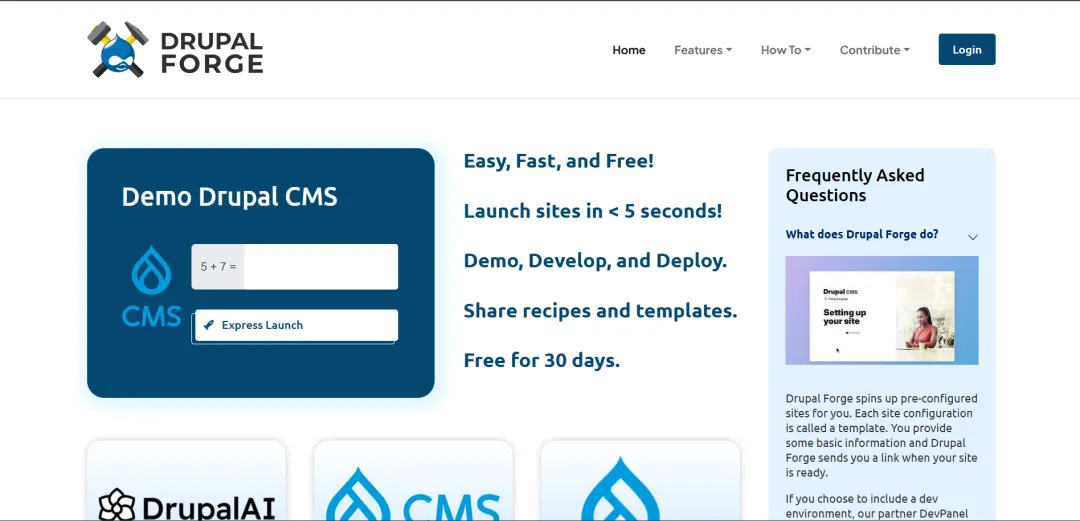
Technical Specifications
Drupal version:
Key modules/theme/distribution used:
